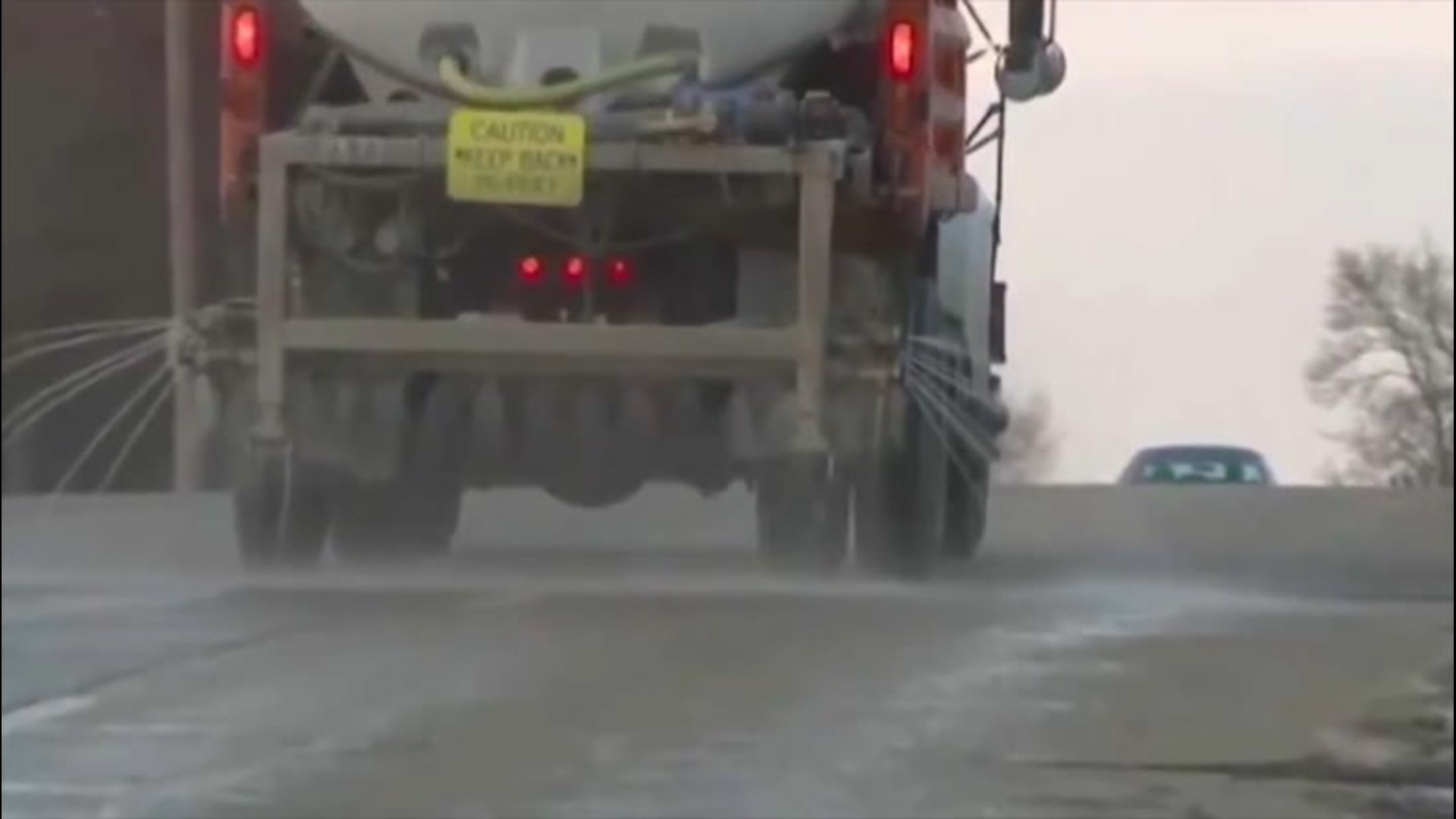After waiting months and months for the much-anticipated COVID-19 vaccine, initial shipments of the Pfizer vaccine were loaded up and sent out in delivery trucks over the weekend. But 2020's latest hurdle is threatening to delay some of those vaccine doses from reaching parts of the United States' most populated areas in the Northeast.
AccuWeather forecasters have been warning of a huge snowstorm, the largest in years, that will be coming together and is expected to unload up to a foot or more of wintry precipitation across the eastern U.S. In addition, parts of the Interstate 95 corridor could be slammed with snow, ice, high winds and even blizzard conditions, which could snarl travel and lead to power outages.
But officials at FedEx said the shipping company is not anticipating any major or widespread weather-related delays despite the gathering storm.
The first vaccine shipments left Pfizer's main manufacturing site in Kalamazoo, Michigan, on Sunday, and the first shots were given out Monday morning in New York, Ohio and other places expected to encounter winter weather this week.
The nation is relying on package delivery giants UPS and FedEx to bring the vaccines to every corner of the country on trucks that are packed with dry ice-cooled packages of the shots.
According to The Associated Press, more truckloads of the vaccine hit the road on Monday, and a third and smaller installment was set to leave on Tuesday, with delivery expected on Wednesday, just as the storm is expected to escalate.
Sederia Gray, a senior communications specialist for FedEx, provided an emailed statement to AccuWeather saying that the company's priority is the safety of FedEx employees and meeting the service needs of customers.
"While some operations and service may be impacted by severe local weather conditions, we will provide service to the best of our ability to accessible areas, and contingency plans are in place," Gray said.
FedEx communications advisor Rae Lyn Rushing, when reached by AccuWeather, said the shipping giant has "a team of 15 meteorologists monitoring conditions 24-7, and we have contingency plans in place should we see any severe weather." Lyn Rushing did not elaborate on what the contingency plans might look like but added that the company doesn't "expect any significant impact at this time."
UPS also has an in-house team of meteorologists, Matthew O'Connor, a senior manager of media relations for the company, told AccuWeather in an email. O'Connor said that team "continues to monitor the weather, and we'll make contingency plans accordingly" but also did not elaborate on those plans. He echoed a previous statement the company released saying that its network has been running smoothly all month.
AccuWeather meteorologists, who have been tracking the potential for a blockbuster storm since the middle of last week, are expecting the storm to become highly impactful and disruptive. Major roadways such as I-95 are expected to be directly impacted.
"A broad swath of 12-18 inches of snow is projected to fall from northwestern Virginia and northeastern West Virginia to part of northern Maryland, south-central and eastern Pennsylvania, northern New Jersey, southeastern New York state and southern New England," AccuWeather Senior Meteorologist Alex Sosnowski said. "Within this area, some places can pick up a 24-inch snowfall amount with an AccuWeather Local StormMax™ of 30 inches."
Sosnowski added that snowfall of this magnitude has the potential to shut down travel and lead to major delays of shipments. The COVID-19 vaccine shipments are particularly complicated given the minus 94-degree temperatures they need to be stored at.
On top of the precipitation, gusty winds are expected to create whiteout conditions in northern New Jersey and the lower Hudson Valley of New York state through southern New England.
"Heavy snow is forecast to fall on Boston; Providence, Rhode Island; Hartford, Connecticut; Scranton, Allentown, Reading, Harrisburg and State College, Pennsylvania; Paterson, New Jersey; Middletown, New York; Hagerstown, Maryland; and Martinsburg, West Virginia," Sosnowski said. "A foot of snow could bury all of these locations with major disruptions to travel and daily activities."

